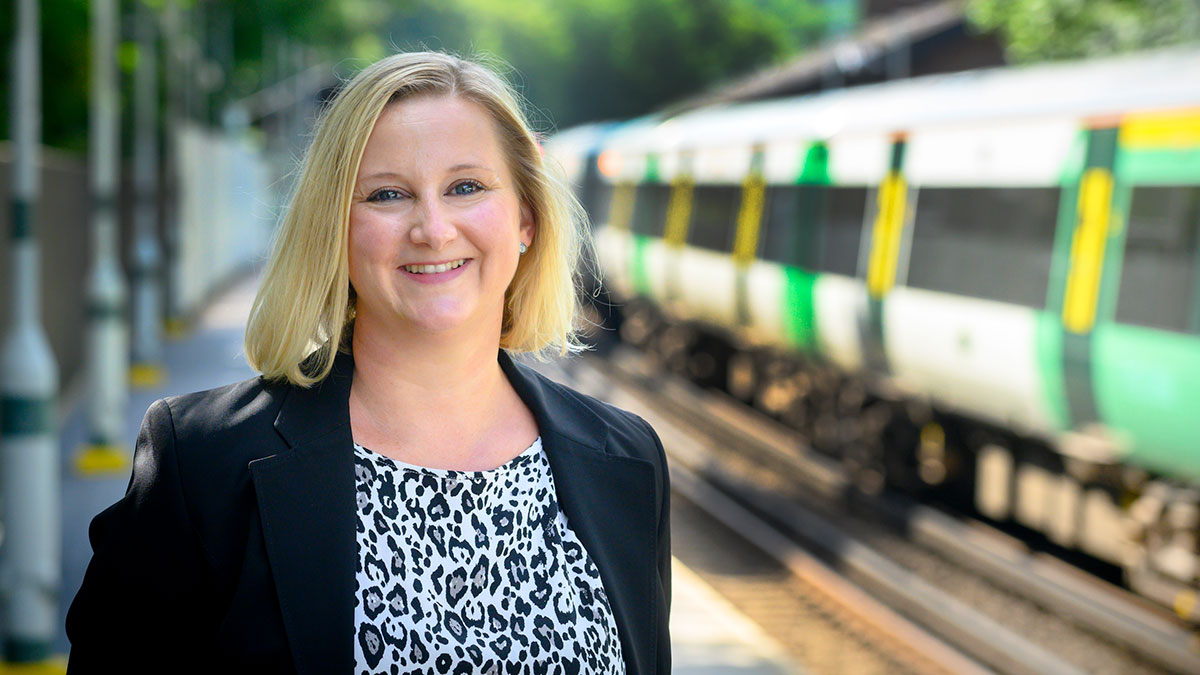
My role as Suicide Prevention Manager is incredibly rewarding. Being able to help people is what gets me out of bed every morning. In my role at Govia Thameslink Railway (GTR), which operates Southern, Great Northern and Thameslink services, I work to proactively reduce suicide by working in partnership with different departments and organisations, including the British Transport Police and Samaritans, as well as our station managers and safety and security teams.
GTR is the only rail company to have a dedicated Suicide Prevention Manager, with a focused remit to help prevent suicide and support those who need it; this is something I’m very proud of. The role isn’t just about making our stations safer, although it is of course a significant part of it. For every life lost on the railway, six are saved and GTR recognises how important it is that our colleagues and passengers have the tools needed to support vulnerable people. However, we also want to raise awareness of the importance of good mental health in the rail industry and beyond.
My grandmother sadly took her own life on the railway when my mum was just four years old. Back then, there wasn’t much support available for those who experienced the impact that suicide can have on people; I don’t think she’s ever processed it properly. When I found out, I remember being in shock and just feeling so sad for my mum.
Even though my mum had concerns about me taking on this role, I was determined to do it because my focus is on how many people can be helped by all the work we’re doing to prevent suicide. It’s incredibly important to me we’re doing something to stop it happening.
There are some high-pressured situations which can create really tough and challenging days. However, hearing stories about our colleagues and passengers who’ve gone above and beyond to save a life is just incredible and so humbling. It’s also important switch off from work and spend time with my family to prevent feeling overwhelmed. I try to get outside as much as possible and we’re really lucky where we live because there’s an amazing lake nearby, which is handy as I really enjoy water sports!
The pandemic has resulted in significant and widespread shifts in how we live our day-to-day lives and organisations need to understand and accept people may be feel more anxious, lonely and in some cases, depressed.
I speak to other train operators and industry partners and colleagues about what more can be done to protect customers and employees. Staff training is the most important aspect as they are the eyes and ears of our business, and they need this to be confident enough to open up a conversation with their colleagues.
My best piece of advice for organisations is to try and ensure anyone struggling with their mental health doesn’t suffer in silence. Actively engaging in a conversation is more important than ever.